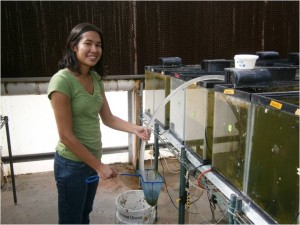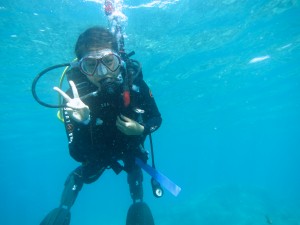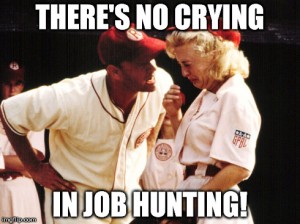Amanda Ilag is a 2013 IB graduate and is our guest blogger this week!
 Remember how you felt studying for the MCAT, taking that organic chemistry final, or going to a volunteer service event all in one day? This is the kind of stress and stamina needed to get through medical school. Year one of medical school takes everything you need to know about the basic sciences and applies it to human anatomy and physiology all in one year. That’s why they tell you to be organized, efficient with your time, and good at assessing your weaknesses and strengths. Studying for medical school is a full time job. You need to find new test taking skills, reform your old ones or in some cases group yourself up with fellow peers so that you get the most out of the learning experience.
Remember how you felt studying for the MCAT, taking that organic chemistry final, or going to a volunteer service event all in one day? This is the kind of stress and stamina needed to get through medical school. Year one of medical school takes everything you need to know about the basic sciences and applies it to human anatomy and physiology all in one year. That’s why they tell you to be organized, efficient with your time, and good at assessing your weaknesses and strengths. Studying for medical school is a full time job. You need to find new test taking skills, reform your old ones or in some cases group yourself up with fellow peers so that you get the most out of the learning experience.
In medical school you are working with an even more selective group of students so the pressure to do well is even higher. The way you need to study and take tests needs to be more efficient than it has ever been in your life. What I liked about SIU in Carbondale is that they counted our first exam lower than all other exams because they understood undergraduate to medical school could be a transition. It was also less pressure to compete for the best grades because our curriculum was a satisfactory/concern/unsatisfactory grading scale instead of actual grades. The good news is if you have the motivation and stamina to succeed; you will succeed! Get excited about testing yourself to the maximal potential of understanding! You’ll be pleased by how much you will have learned and even more curious about all there is to come.
A big part of learning now in any medical school curriculum is through “problem based learning.” This style of learning was crucial in SIU’s curriculum. It was discussion based and really challenged students to help each other understand material in a non-confrontational (group of 6-8 students) and moderated setting (tutor group leader, either a doctorate faculty member in the basic sciences or an actual physician). It was so different than undergraduate lectures where the lecturer told you most things and there was little or no discussion between students before exams. With problem based learning, students were the ones discussing what could be wrong with a “fake patient” in the computer system whose “labs, physical exam, and history information” were based on a compilation of actual patient records. It is a chance to explain material in your own words, to see if you are on the right track, and helps solidify material into memory.
I learned a lot about myself by talking with fellow students. Not all of your classmates are fresh out of college, in fact some may already be married with kids, so it was neat to gain new perspectives on life by talking with fellow classmates who are different from me. I made a lot of new friends that I hadn’t expected to make based on age, diverse background, previous work experiences, etc. We got to know our peers well because of our small class size, making it easy to be studious and to get together when we needed to have fun.
There is some clinical experience involved in year one. First years got a mentor to shadow in a specialty of your choice (mine was family medicine) where I would go once a week to observe and learn how to talk to patients from the surrounding community. You learn techniques for doing physical exam, what type of questions to ask to lead you to a list of possible diagnoses, and you learn to communicate this information concisely both verbally and in writing.
You still have time for hobbies, significant others, and relaxation you just have to be smart with your time; and be ready to adjust as necessary. And when you do find yourself in stressful situations get help from people you know and trust. There were many people on our faculty and fellow students that helped me deal with stress. And my family continued to be a strong means of support.
If you are applying to medical school or thinking about applying consider this… IS the lifestyle of a medical student something you can work with? CAN you imagine doing anything else? If you answered YES, then NO, go for it. If you have applied but are not sure whether you want to go, take some time off to think about it. Year one of medical school is a life-changing experience for anyone so be really sure you want to go before doing it. If you have been accepted and are sure you want to go, congratulations there is so much more you will learn about yourself along the way, and you are that much closer to being the doctor you’ve always wanted to be. Sometimes people find they don’t want to go AFTER they’ve already been there, and that’s ok too. The skills you will learn from a year of medical school will stay with you for the rest of your life and will surely make you a better person for it! Just consider all the options and learn as much as you can about it before diving into it.

 My name is Sally Feng. I graduated with a B.S. in Integrative Biology in May 2014. I am currently doing work on coral restoration in the Philippines under a Fulbright research grant. If you are interested in applying for a Fulbright, here is my experience.
My name is Sally Feng. I graduated with a B.S. in Integrative Biology in May 2014. I am currently doing work on coral restoration in the Philippines under a Fulbright research grant. If you are interested in applying for a Fulbright, here is my experience.